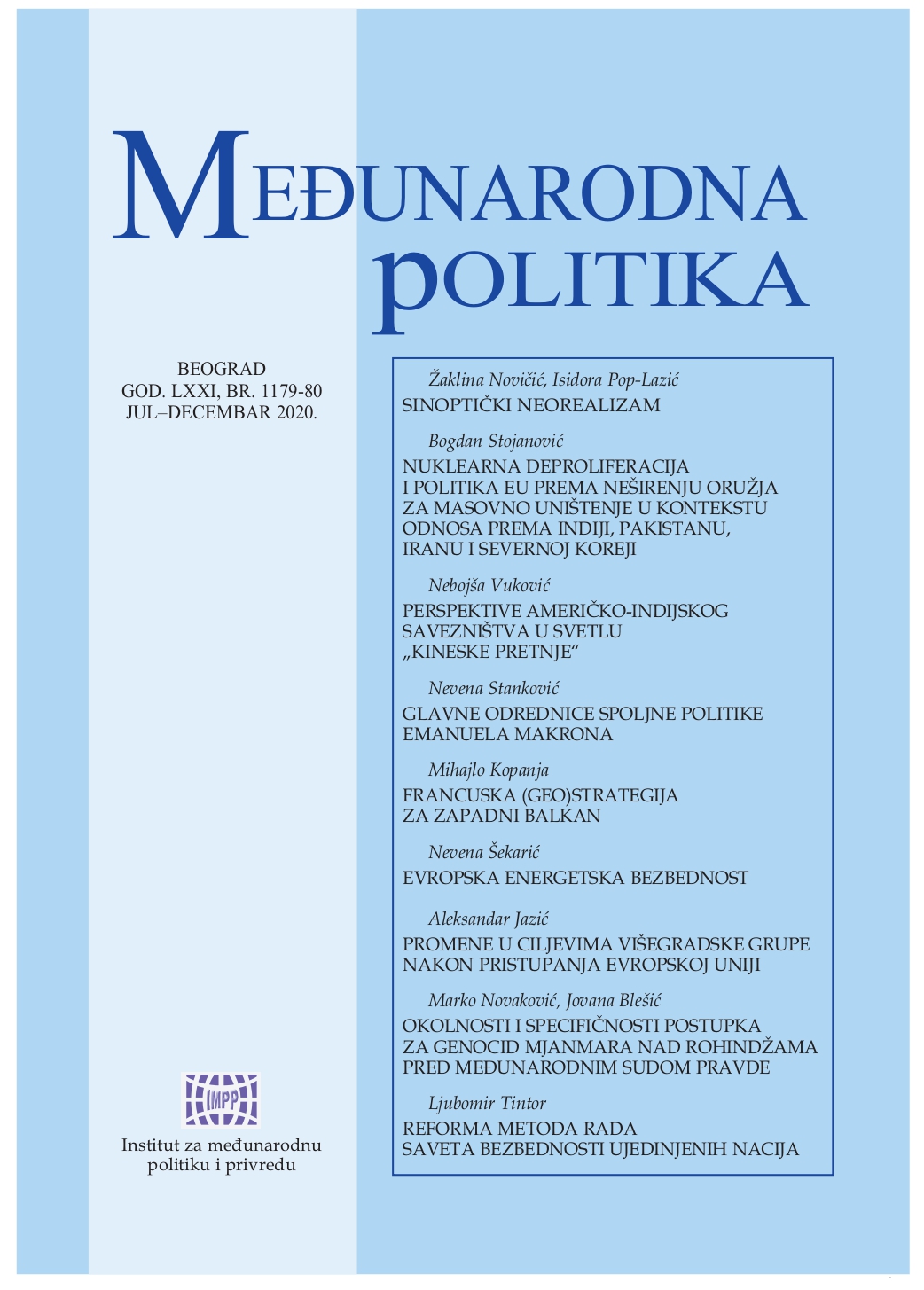Promene u ciljevima Višegradske grupe nakon pristupanja Evropskoj uniji
Changes in the goals of the Visegrad group after accession to the European Union
Author(s): Aleksandar JazićSubject(s): Environmental and Energy policy, EU-Accession / EU-DEvelopment
Published by: Институт за међународну политику и привреду
Keywords: Visegrad group; European Union; Russia; Ukraine; North Atlantic Treaty Organization; the migrant crisis; security policy; international relations
Summary/Abstract: After the end of the Cold War, the states of the Visegrad Group transformed their political and economic systems in order to join the European Union. They achieved that goal in 2004. Until recently, the positions and policies of these countries were in line with the official positions of the Union. However, to respond more adequately to new external and internal challenges, such as the conflict in Ukraine and the migrant crisis, Brussels has formulated positions that the Visegrad Group countries have not fully supported. By taking different positions in relation to the EU institutions, these countries try to protect their national interests and get opportunities to have a greater influence on the creation of European policies. Although this was opposed by Brussels, some EU members supported the opinions of the Visegrad Group countries. In that way, these countries encouraged the formation of a new block within the EU. This not only allowed them to have their voices heard more but also called into question the existing balance of power in the Union.
Journal: Међународнa пoлитика
- Issue Year: 71/2020
- Issue No: 1179-1180
- Page Range: 139-155
- Page Count: 17
- Language: Serbian

